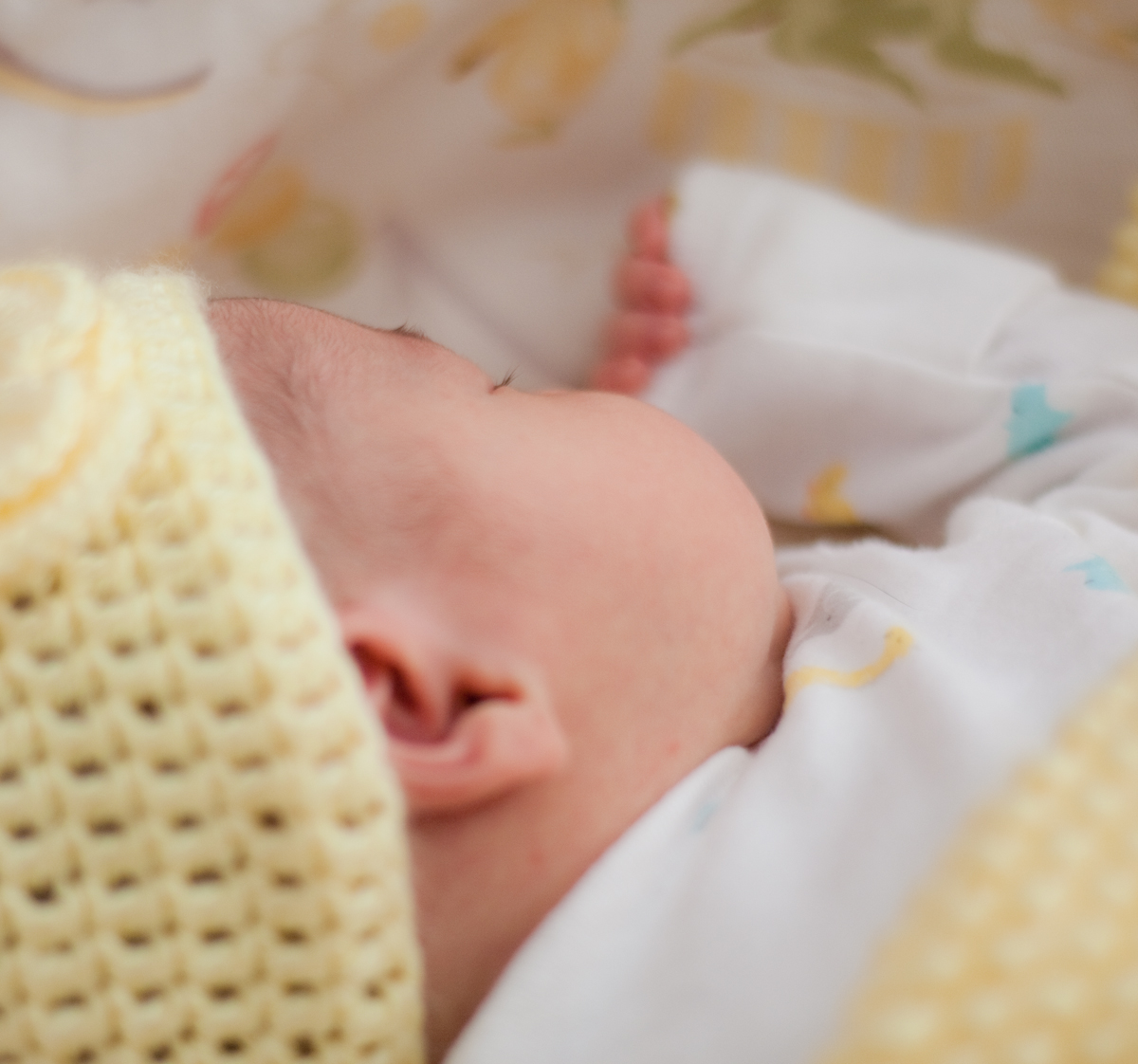I had no idea how much I didn’t know about baby sleep until I found myself sharing an apartment with a 5 week old who had no interest in sleeping.
I know there are some of you out there with babies who slept when they were tired, slept so soundly you could even run a vaccum under their crib! Woke up after a couple of hours, well rested and ready to play. Would lay down for another nap in a few hours, get an other couple of hours in. Oh, and slept through the night to boot. Not the definition of “sleeping through the night” (8 hours), I’m talking the solid, magical 12 hours a night. All without you having to do any sort of sleep training.
You probably don’t need to read any further. Congratulations. You won the baby sleep lottery and it’s better for all involved if we don’t speak of this again.
SO, back to the rest of us. The first step to getting any sort of handle on baby sleep is to learn about baby sleep Again, I had read SO MANY BABY BOOKS before having Bean, and none of them included a chart on how many hours of sleep newborns needed or anything about how baby REM patterns are different than adult REM patterns. And there I was, with my newborn, completely unaware how long she should be awake between naps, how much sleep she needed, and how (for the love of God) to convince her to go to sleep and stay asleep.
Assuming you’re equally clueless about baby sleep patterns here are your most popular options:
Healthy Sleep Habits, Healthy Child by Dr. Marc Weissbluth
The Sleepeasy Solution by Jennifer Waldburger and Jill Spivack
The No-Cry Sleep Solution by Elizabeth Pantley and William Sears
The Baby Sleep Book by William Sears and Robert Sears
The Happiest Baby On The Block by Harvey Karp
Solve Your Child’s Sleep Problems by Richard Ferber
Twelve Hours’ Sleep By Twelve Weeks Old by Suzy Giordano and Lisa Abidin
The Baby Whisperer Solves All Your Problems by Tracy Hogg and Melinda Blau
Bringing Up Bebe by Pamela Druckerman
Most of them agree on the big picture — how many hours of sleep a baby needs and how baby sleep patterns are different than adults’ — the difference lies in the methods advocated.
“Healthy Sleep Habits, Healthy Child” (Weissbluth), “Solve Your Child’s Sleep Problems” (Ferber), and “The Sleepeasy Solution” are probably best known for advocating cry it out solutions. Each is more complicated than putting baby in a room and closing the door, though, offering gradations of the technique based on your comfort level. I’d recommend picking up at least “Healthy Sleep Habits, Healthy Child” for all of its informative charts on baby sleep patterns by age. (And for drilling into the reader how important sleep is for a baby/child.)
And then, of course, you have the anti-cry it out books: “The No-cry Sleep Solution,” “The Baby Sleep Book,” and “The Baby Whisperer Solves All Your Problems.” These offer a more holistic approach — the belief that naps, feedings, loveys, habits, and routines all affect your baby’s overnight sleep. To improve overnight sleep, you also have to focus/improve on the rest of it. These books can be INTENSE though, require a lot of daily (hourly?) self-discipline on the parents’ part, and put a lot of emphasis on this not being an overnight fix. Basically, you’re in it for the long haul.
Finally, you have the outlier books that don’t fit neatly into either category. “The Happiest Baby On The Block” offers up specific techniques (swaddling, shushing, holding baby sideways, etc) to get baby to stop crying and calm down. (For us, they did work instantly, but they also stopped working the instant we tried to put her down.)
“Twelve Hours’ Sleep By Twelve Weeks” also offers up a holistic approach to baby sleeping through the night, by advocating fixed times for daytime feedings and naps by age. (This seemed wholly impossible to me, so I didn’t even try it.)
Finally, “Bringing Up Bebe” isn’t a sleep book at all, but there are a few interesting chapters on how the French approach baby sleep versus how Americans approach baby sleep. Druckerman boils it down to Le Pause — not immediately rushing to baby as soon as she wakes up but holding back to see if she starts wailing or merely moans before going back to sleep. The theory is that Americans are told by their pediatricians that babies wake up in the middle of the night in order to eat; the French are not told that and so don’t assume that baby is hungry when she wakes up. That’s why Americans tend to attend to their babies as soon as they wake while the French tend to hold back until they’re sure. Interesting idea that’s easily implemented.
I’ve had friends and family swear by each of these books. This is why I believe it’s not which book you pick, but that you pick a book and stick to it. A consistent approach seems to be important. (And if it REALLY doesn’t work, pick a different one and stick to that.)
For us? I read through all of them (oh yes I did) and settled on “The Baby Whisperer”, mostly because we started having sleep issues at 5 weeks old (before you’re really supposed to start “sleep training”) and they were naptime sleep issues. That was one of the few books to offer specific pointers on newborn napping.
Other mamas, what sleep book do you swear by?
———————————————————–
(Want more Baby Sleep Week? Check out Start A Sleep Diary, Sleep Windows And The Scourge Of Overtired, Self-Soothing Meets Accidental Parenting, and Accepting Your Limitations.)







